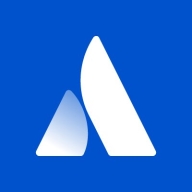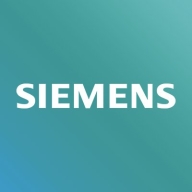

Polarion Requirements and Jira are project management and requirement tracking tools. While Polarion shines in structured requirement management, Jira is preferred for its flexible, agile project management features, giving it an edge due to its extensive integrations.
Features: Polarion emphasizes traceability, customizable workflows, and linked work items, making it suitable for regulated industries. Key features include link tracing, sequence training, and book entry. Jira excels with agile boards, third-party integrations, and customizable dashboards. Key features include issue and bug tracking, powerful API integrations, and agile boards.
Room for Improvement: Polarion could improve its integration ease with third-party tools and enhance its user interface for more intuitive navigation. It could also benefit from a wider range of pre-configured templates. Jira could improve in handling large datasets without performance issues and enhance support for complex project setups. It lacks automatic capacity planning and advanced workload forecasting.
Ease of Deployment and Customer Service: Polarion offers an on-premises deployment option with dedicated customer support, ideal for controlled environments. Jira is cloud-based, backed by extensive online resources and community support, aligning well with teams needing scalable access.
Pricing and ROI: Polarion involves a higher initial setup cost, justified by its depth in requirements management. Jira's subscription model is cost-effective, allowing quick deployment and ROI, making it appealing to startups and agile teams.
| Product | Market Share (%) |
|---|---|
| Jira | 12.4% |
| Polarion Requirements | 15.7% |
| Other | 71.9% |


| Company Size | Count |
|---|---|
| Small Business | 105 |
| Midsize Enterprise | 56 |
| Large Enterprise | 150 |
| Company Size | Count |
|---|---|
| Small Business | 6 |
| Midsize Enterprise | 3 |
| Large Enterprise | 5 |
Jira is a powerful cloud- and subscription-based application lifecycle and issue management solution. It is designed to aid users both in project management and in resolving any issues that arise at any point in the software development process. It is especially concerned with easing the ability of developers to collaborate.
Jira Benefits
Some of the ways that organizations can benefit by choosing to deploy Jira include:
Jira Features
Real-time notification feature. Users can set Jira so that it offers them notifications that contain critical information in real time. It can send users email notifications when pressing issues have been updated. They can also set it to notify them about tasks that may be due, or other similar events.
Reviews from Real Users
Jira is a powerful solution that stands out when compared to many of its competitors. Two major advantages it offers are its workflow engine and its highly customizable dashboard.
Bharath R., the tool implementation and project management lead at a financial services firm, writes, “I feel the strongest feature of Jira is its workflow engine. It empowers us to automate our workflows within our organization. It's the one characteristic of Jira which I think can help any organization, be it in any domain.”
Uday J., a staff engineer at a computer company, says, “Another thing that I like a lot about Jira is that in the dashboard, you can plug the modules that you want. You can enable certain sections. For example, you can show trend history, open Jira tickets, etc. Some of the managers have created a dashboard for each engineer.”
We monitor all Application Requirements Management reviews to prevent fraudulent reviews and keep review quality high. We do not post reviews by company employees or direct competitors. We validate each review for authenticity via cross-reference with LinkedIn, and personal follow-up with the reviewer when necessary.